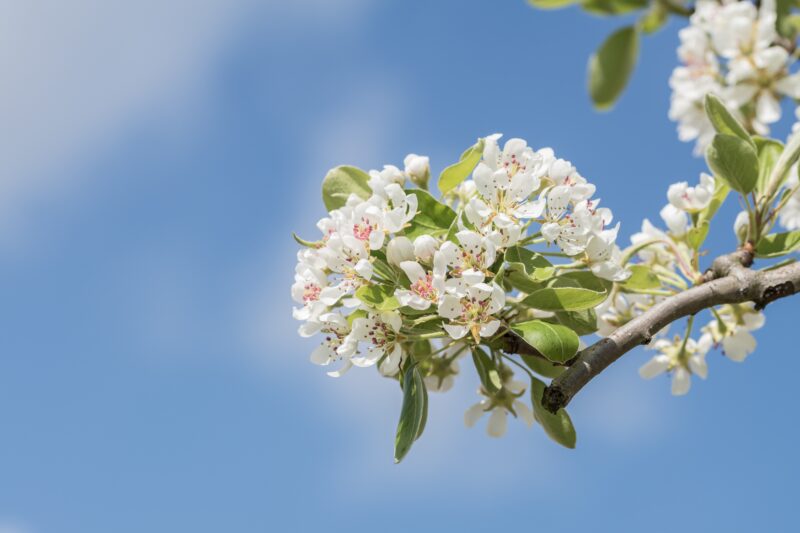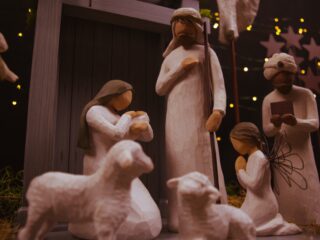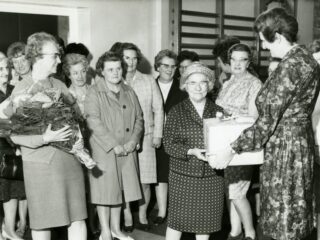Johnny Appleseed is a well-known story from the early days of America. According to the story most of us heard when we were in school, Johnny Appleseed was an eccentric free spirit on the American frontier who wore a tin pot for a hat and walked barefooted throughout the Midwest planting apple trees.
Of course, the reality of Johnny Appleseed is a little more complicated than that. Johnny Appleseed was really named John Chapman. Chapman was a man of deep faith who didn’t think it was right to harm any of God’s creation. Once, he saw moths being killed in his campfire so he put out the fire to protect the moths. He also believed grafting hurt the apple trees, and he wouldn’t graft one branch onto another tree.
The unexpected consequence of his refusing to graft branches onto his trees meant the apple trees had to adapt to their new environments. The trees grew heartier and more resilient. Many of the apple varieties we take for granted in our country can be traced back to Johnny Appleseed.
But there’s something else. As our country began to move westward, settling more and more of the Mississippi and Ohio River valleys, Congress passed a law giving ownership of the new land to anyone who settled it. What was proof of settlement? The new owner of the land had to plant at least 50 trees on it.
This meant Johnny Appleseed owned acres and acres of land as the new settlers moved in. At one time, he was one of the largest landowners in the area. He would sell new pioneers the land he had claimed by planting the apple orchards. After all, it was his land. He had planted apple trees there.
Johnny Appleseed saw where the people would be moving and went and claimed the land before they got there, and then sold it to them for a profit. He moved to the future before anyone else did and when everyone else got there, Johnny Appleseed was waiting on them.
Reading this story reminded me of another story. One time, when the Babylonian army was surrounding Jerusalem and the city was in danger of being overrun by armies of Nebuchadnezzar, Jeremiah bought a piece of land. To many around him, Jeremiah seemed foolish. Why would you buy a piece of property that is about to be overrun? Why would you buy land you will never live on or use?
The reason the prophet bought the land was to proclaim to his people he was sure God would restore Jerusalem in the future, and when He did, Jeremiah wanted to be part of it. He may not live long enough to see it happen, but when it did happen, those returning would trace the deed of that land back to Jeremiah. Jeremiah wanted to be part of what God was doing in any way he could. The future belonged to God, and Jeremiah would be part of it.
One of the things that happens when we reach certain milestones is that we stop looking to the future and start reminiscing about our past. We talk about how things used to be, and we seem less concerned about what things will look like in the future.
What if, like Jeremiah, we were so convinced of God’s moving in the future, that we would “buy a little piece of land” where we knew God was going to move even if we’d never be part of what God ends up doing there? What if we were so convinced the future belonged to God that we would get to that future as fast as we could?
For instance, what if you supported a church planter in a different area of your city? What if you provided a scholarship at one of our seminaries for the training of a pastor or missionary whose ministry you’ll never see? What if you fund a homeless ministry or food bank?
What if you begin to train a young Christian knowing you’ll never fully understand what God wants to do in that young person’s life? You get the idea. Look to see where you think God will be in five years, ten years — and go there now.
It’s spring. It’s time for planting, for beginning new things. We’re never too old to plant something. Johnny Appleseed teaches us that. We’re never too old to plant something new. We believe the future belongs to God, and we’re never too old to be part of it.









